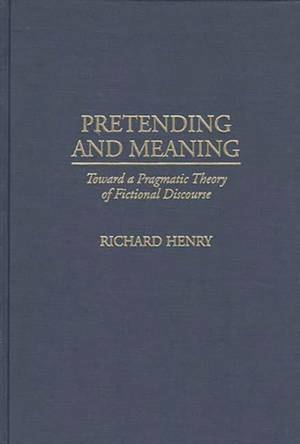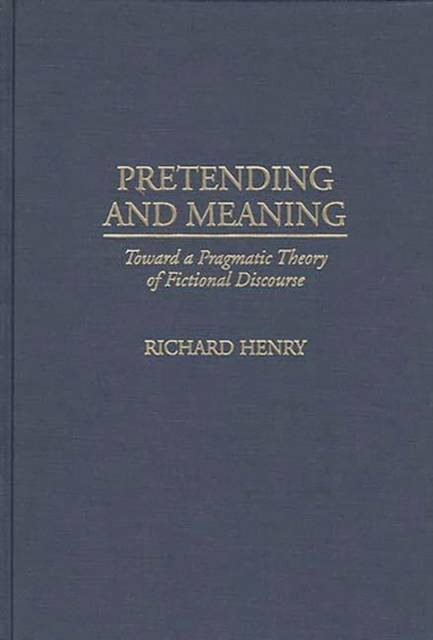
- Afhalen na 1 uur in een winkel met voorraad
- Gratis thuislevering in België vanaf € 30
- Ruim aanbod met 7 miljoen producten
- Afhalen na 1 uur in een winkel met voorraad
- Gratis thuislevering in België vanaf € 30
- Ruim aanbod met 7 miljoen producten
Zoeken
€ 127,45
+ 254 punten
Omschrijving
Since Plato, Western critics of literature have asked how it is possible for fiction writers to mean something serious. The outrage over Salman Rushdie's The Satanic Verses, published in 1988, highlighted our continued uneasiness over distinctions between fact and fiction, novel and history, truth and falsehood. The blasphemy charged against Rushdie raises important questions: Did Rushdie mean The Satanic Verses, or didn't he? When he publicly recanted, what did he mean? What do we even mean by mean?
This is the starting point for Richard Henry's fascinating investigation of the pragmatic foundations of fictional discourse. Drawing from Paul Grice's interrogation of meaning and implicature, Henry offers a systematic correlation between what it is to pretend and what it is to mean, how the two concepts inform each other, and how it is possible to mean seriously and sincerely by purportedly pretended acts. Pretending and Meaning: Toward a Pragmatic Theory of Fictional Discourse draws upon Paul Grice's interrogation of meaning and implicature to offer a systematic correlation between what it is to pretend and what it is to mean, how the two concepts inform each other, and how it is possible to mean seriously and sincerely by purportedly pretended acts.Specificaties
Betrokkenen
- Auteur(s):
- Uitgeverij:
Inhoud
- Aantal bladzijden:
- 142
- Taal:
- Engels
- Reeks:
Eigenschappen
- Productcode (EAN):
- 9780313298899
- Verschijningsdatum:
- 30/06/1996
- Uitvoering:
- Hardcover
- Formaat:
- Genaaid
- Afmetingen:
- 163 mm x 243 mm
- Gewicht:
- 362 g

Alleen bij Standaard Boekhandel
+ 254 punten op je klantenkaart van Standaard Boekhandel
Beoordelingen
We publiceren alleen reviews die voldoen aan de voorwaarden voor reviews. Bekijk onze voorwaarden voor reviews.











